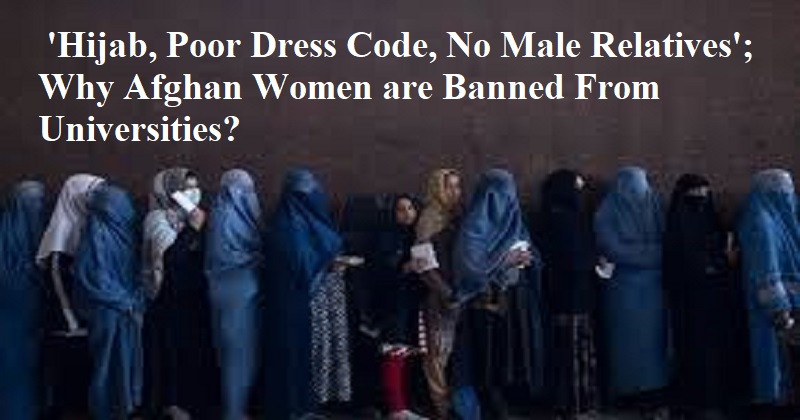
The Taliban explained why Afghan women were prevented from joining institutions. claimed that female students were not adhering to clothing regulations. Since the Taliban seized control in August of last year, the prohibition issued earlier this week was yet another setback to women’s rights in the Islamic-ruled country. According to a story on NDTV, Neda Mohammad Nadeem, the minister of higher education in the Taliban administration, said that women have disregarded fundamental Islamic rules in colleges, such as what to dress and the need to travel with a male relative.
Spate of restrictions
Every facet of women’s lives is constrained in Afghanistan. The requirement that women cover themselves in public and are prohibited from travelling alone. Women may only be taught by professors of the same sex, and universities are required to instal gender-segregated classrooms and entrances. Most of the country’s secondary schools for girls have also been shuttered since March; this closure is likewise just temporary, according to the Taliban, despite their profusion of justifications for why the schools haven’t reopened in the time since. Additionally, those madrassas that were located within mosques and solely taught women’s classes had been shut down by the government.
Global outrage against treatment of women
Taliban’s policies for restricting women’s movement and education has drawn flak from various international bodies. Group of Seven industrialised nations have strongly condemned the ban on female students in universities. Saudi Arabia too expressed ‘astonishment and regret’ at the ban, urging the Taliban to reverse it.
India has criticised the Taliban’s decision to ban university education for women in Afghanistan. Several countries including the US, Australia, Canada, France, Germany, Japan and the UK have strongly condemned the move. Talibani ministers have hit back at the international community, saying it should ‘not interfere in Afghanistan’s internal affairs’.
Rare women-led protests against the Taliban regime
Women-led protests have turned increasingly rare in the country since August 2021. Protesters risk arrest, violence and stigma from their families for joining the march. The authorities have also reportedly taken to public floggingings of men and women in recent weeks as they implement a radical interpretation of Islamic sharia law.
Taliban rule
The Taliban spread a strict interpretation of Islam, and its top cleric, Hibatullah Akhundzada, and his inner circle of clerics have spoken out against modern education, particularly for females and women. Although the nation remained socially conservative throughout the 20 years between the Taliban’s two administrations, girls were permitted to attend school and women were free to pursue jobs in all fields.

Post Your Comments